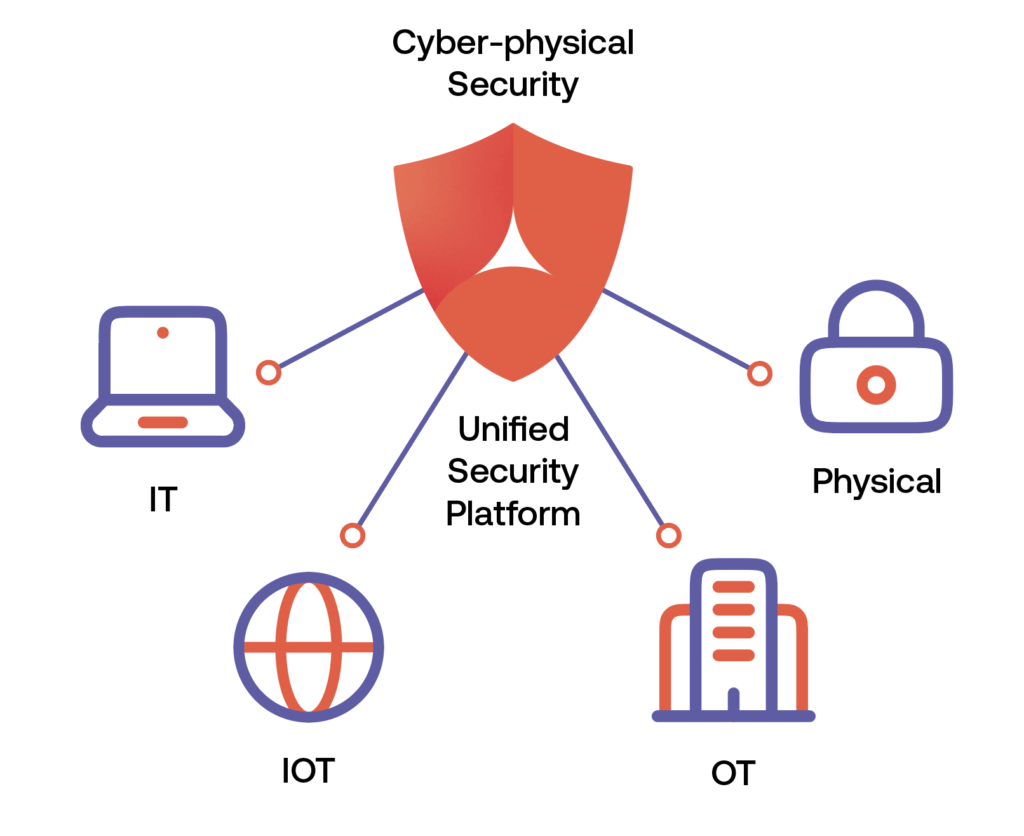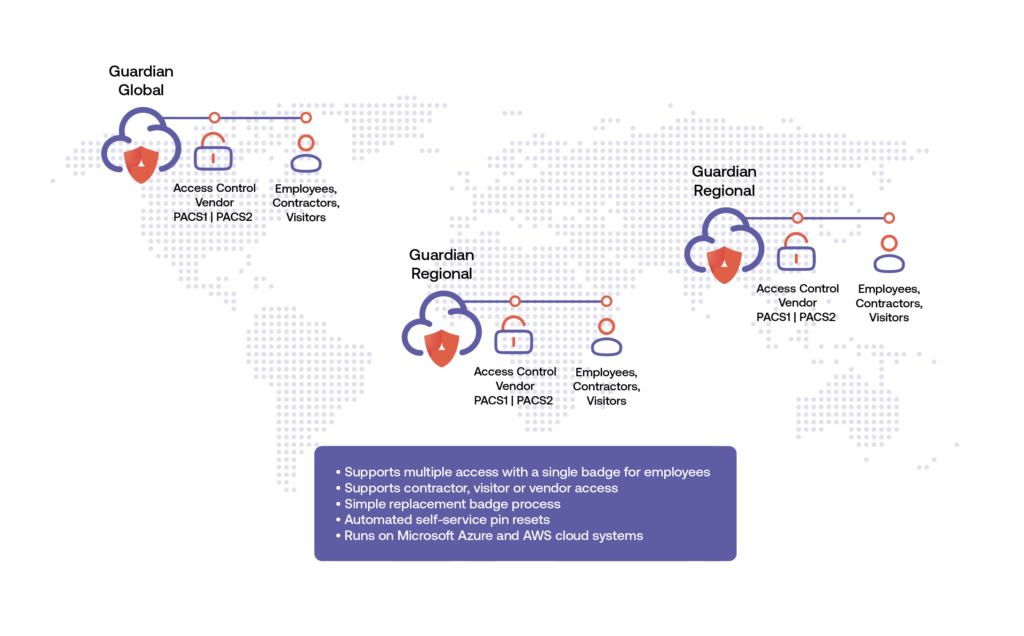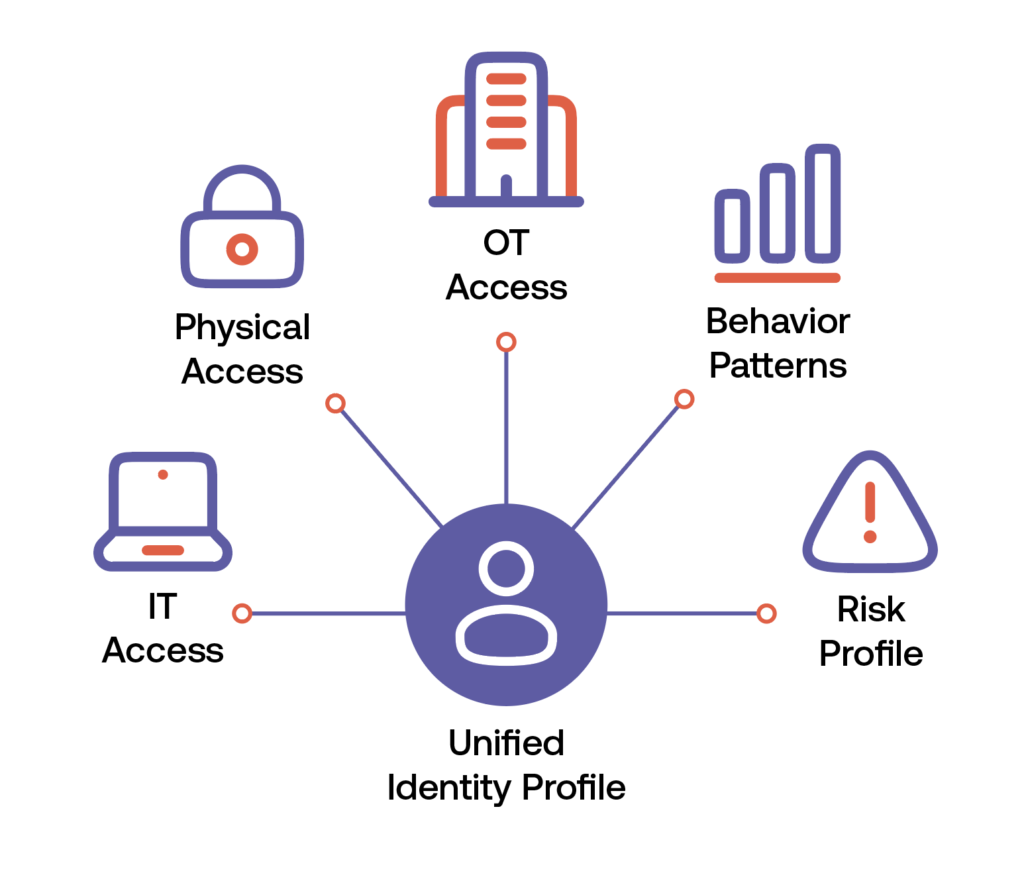Written By:
rwilliams
Identity, trust and security are at the heart of enterprise digital transformation, making it easier and faster to engage customers and partners, create amazing experiences and offerings and level up operations. Security is now a true business enabler. Here are 8 steps to implement a holistic approach to managing physical and logical identities for employees, contractors, vendors and visitors to align security with business goals and reduce enterprise risk.
1. Take A Converged Cyber-Physical Approach
As digital systems are controlling more and more of our critical infrastructure, security convergence now encompasses IT, Physical Security, Operational Technology (OT) and IoT, all rolled-up into Cyber-Physical. Physical Identity Access Management (PIAM) can address all identities across the entire enterprise and is the cornerstone of a secure and compliant experience for workforce, visitors and contractors. A converged solution that integrates with HR systems, IT, OT and Physical Access Control Systems (PACS), delivers the ability to assign specific roles-based logical and physical access – a foundation for a cyber-physical approach. With a converged security technology platform your Security Operations Center (SOC) can deliver a unified and proactive threat response to a wide range of incidents – with real-time data connection across enterprise applications

2. Extend Identity Management and Identity Governance Beyond IT
Unified security must extend beyond IT and include OT and physical security controls. New converged cyber-physical security models detect security gaps that go undetected by conventional IT-only security automation tools. You can manage the complete identity lifecycle from onboarding to offboarding for your internal and external workforce, visitors and contractors and tie it directly to access governance for IT, physical and OT workspaces. Automated workflows allow security and IT department managers to quickly approve or deny access requests while actively enforcing company policies and satisfying compliance and industry regulations.
Key capabilities include:
- Common Identity for Logical and Physical Identities
- Identity Lifecycle Management with Automated Workflow
- Access Certification and Authorization – Logical and Physical
- Contractor Management and Visitor Management Capabilities
- IT Roles, OT Roles and Physical Access Authorizations
3. Enable IT-OT Convergence to Protect Critical Infrastructure
Alert Enterprise software enables organizations to fully integrate their IT systems with OT, not only for provisioning but also for monitoring and correlation of blended threats in a truly converged approach. IT and OT managers can define, tailor and enforce policies – closing gaps and minimizing risk of uncontrolled access to sensitive or mission critical areas.
Key capabilities include:
- Role-based and user-based access
- Roles that should have corporate access and authorizations
- Roles that should have sensitive area access and authorizations
- Roles that have OT system access – combined with IT access
Read the IT-OT Convergence e-book
4. Ensure There’s Built-In Compliance and Active Policy Enforcement
Your compliance department wants to make the auditors happy and reduce the amount of time and effort it takes to report. With PIAM, built-in controls automate the compliance process, adhering to all industry regulations and corporate policies. Automatic verification of training and background certification deliver real-time rule enforcement. And when requirements are not met, access can be automatically revoked. Compliance and Active Policy Enforcement features enable you to easily and consistently meet regulatory requirements. In addition, you can now enable roles-based and individual user-based access to critical assets based on identity profile attributes.
Key capabilities include:
- Regulatory Compliance Requirements
- Validate Training and Certification Systems
- Roles-Based Access to Critical Assets – Dynamic Update Upon Role Change
5. Plan for Enterprise Scalability and Global Deployment
The latest software solutions are designed to scale to hundreds of thousands of users for large enterprise and mission critical applications. In one example, a government agency uses PIAM software from Alert Enterprise to globalize their deployment, cover 18 different time zones and unify security policies across 200 countries. Powerful and flexible technology platforms aggregate reporting and stats from all locations, with high availability enterprise fail-over and backup. Secure on-premise or cloud-based SaaS architecture supports global deployment and scale.
Key capabilities include:
- Global PACS Consolidation
- Aggregated Reporting
- Powerful and Configurable Technology Platform
- Cloud or On-Prem Deployment

6. Build Risk Intelligence into Your Process
Purpose-built risk analytics and risk management features go beyond traditional badging solution capabilities. Identity Intelligence technology arms your threat hunters with data on user attributes, access patterns and even policy violations you can use to establish identity risk scores. Embedded access behavior monitoring automatically detects anomalies and sends alerts on exceptions. With customizable reports and dashboards, enterprises stand ready to mitigate and prevent blended cyber-physical insider threats.
Key capabilities include:
- Risk Scoring – Attributes
- Access Behavior Monitoring – Anomaly Detection
- High-Risk Individual Accessing High-Risk Area

7. Select Cyber-Aware PIAM Platforms
One might say it was only a matter of time: We have been digitizing our physical world, blurring the lines between physical and cyber spaces. Cyber-incidents can now have direct impact on physical assets and processes and vice versa. PIAM software enforces best-practice cyber protection for systems across physical security, OT, IT and automation. Even cyberattacks on legacy and migrated physical access control system (PACS) components are part of real-time monitoring: alerts are created from unauthorized configuration changes or when badges or identities created in the PACS backend database bypass or circumvent standard operating procedure or company policies. Explore Enterprise Sentry unified threat response platform.
8. Make Every Workspace Count
With the digital transformation, new intelligence comes to light in the workspaces we secure. Recent studies show that managing 60% of enterprise workspace more effectively can add 20% to your bottom line every year. PIAM from Alert Enterprise delivers added data with Workspace Intelligence, facility-wide utilization insights for the enterprise to optimize available space. Workspace Intelligence enables organizations to automatically capture and measure building occupancy, utilization and optimization data to identify areas of cost reductions, efficiency improvements and potential revenue streams. More effective space utilization translates into real dollar savings for the enterprise and a stronger bottom line.
Discover how security can become your business enabler.
Key capabilities include:
- Interactive Data and Metrics Capture, Measure and Display Building Occupancy
- Drill-Down Dashboard for Occupancy by Region, Location, Department
- Intelligence Gathered from Physical Security, Multiple PACS, ID Badge Allocation/Usage
- Scales Up – From a Few Floors to Global Enterprise
- SaaS and On-Prem Platform
Take your next step and request a demo today.






